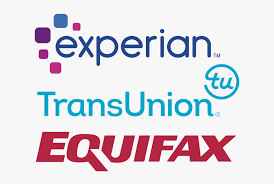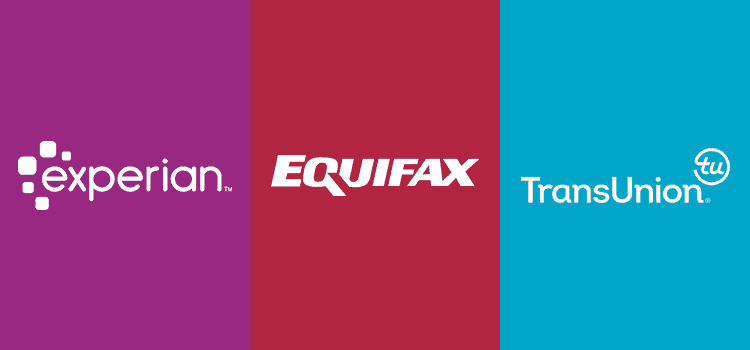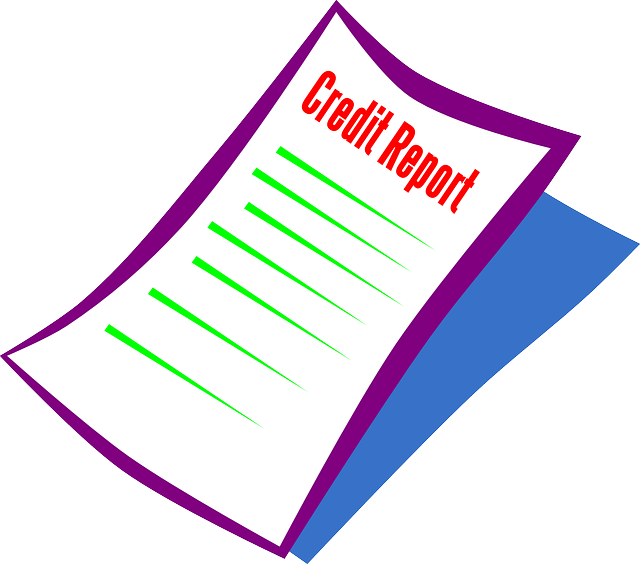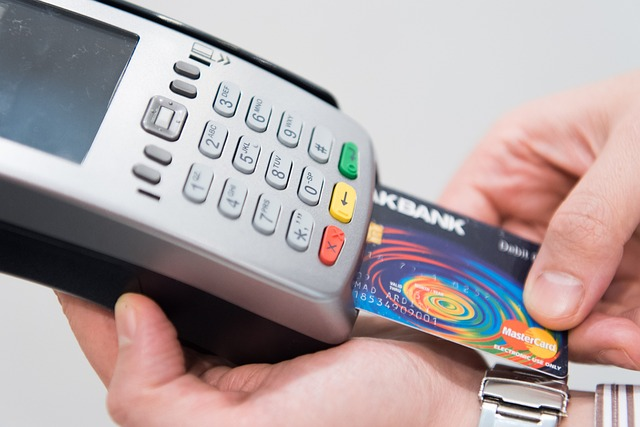How do the 3 Major Credit Bureaus work?
Equifax, TransUnion, and Experian are the primary credit reporting agencies in the U.S. Equifax is based in Atlanta, Georgia, and was founded in 1899. Experian has its domestic headquarters in Costa Mesa, California, and operates in 30 countries. TransUnion is based in Chicago and has regional offices in various countries.
Credit bureaus gather information from sources such as creditors, public records, and consumers to create a comprehensive credit profile that assesses an individual’s creditworthiness. They then combine this information to create credit reports that show a person’s financial history.
.
These reports include information such as how much money people owe, how well they’ve paid their bills, and whether they’ve had any money problems. The credit bureaus use special math formulas to calculate credit scores based on the information in the reports. They also regularly update and check the information to ensure it’s accurate and current.
Credit bureaus operate under federal regulations to ensure accuracy and fairness in reporting. Credit bureaus are regulated under the federal Fair Credit Reporting Act (FCRA).
How the Credit Bureaus Maintain Your Credit History
Here’s a quick summary of the steps credit bureaus take:
- Gather consumer data from various sources.
- Compile comprehensive credit reports.
- Use internal formulas to calculate your numerical credit score.
- Regularly update and refresh data for accuracy.
What’s different between Equifax vs Experian vs TransUnion?
The credit bureaus collect information about your credit history. Sometimes, the information reported by different credit bureaus can be a little different, leading to variations in credit scores. For example, a loan, financial institution, or credit card issuer that shows up on your Equifax report might not be on your TransUnion report.
Each bureau also uses its own way of calculating your credit score so that you might have different scores from each one. To ensure your credit history is accurate, checking your different credit reports from all three bureaus is essential, as each collects and maintains unique financial and personal information.
When comparing Equifax, TransUnion, or Experian credit reports, it’s essential to consider their similarities and differences. While they all provide similar information about an individual’s credit history, there may be variations in how they present the data.
For example:
- Equifax may provide additional details on your overall credit usage.
- Experian might offer more comprehensive identity theft protection services.
- TransUnion could focus more on educational resources for consumers looking to improve their credit scores.
Understanding these distinctions can help individuals make informed decisions.
How do I get my Credit Report from all 3 Bureaus?
You have a couple of options to obtain your credit report from Equifax, Experian, and TransUnion. You can either request the reports individually or utilize a credit monitoring service. It’s important to note that each credit bureau operates independently, meaning they may have slightly different information on your credit report.
Under the Fair Credit Reporting Act (FCRA), every consumer gets one free credit report online from each credit reporting agency every 12 months. You can access your free reports at www.AnnualCreditReport.com.
You might want to request a credit report before or after applying for credit. Lenders may check only one or two of the three credit bureaus when evaluating credit. If your credit application is denied, the lender must provide you with an explanation. Lenders are required by law to provide you with a copy of the report used for the decision if your credit application is denied.
Here are other ways you can go about obtaining your reports:
Requesting Reports Individually
- Visit the official websites of Equifax, Experian, and TransUnion.
- Look for the section dedicated to requesting a copy of your credit report.
- Follow the instructions provided and fill out any necessary forms.
- Be prepared to provide personal information such as your name, address, social security number, and date of birth.
- Submit your request and wait for confirmation.
Using a Credit Monitoring Service
- Research reputable credit monitoring services that offer access to all three major credit bureau reports.
- Compare their features, pricing plans, and customer reviews to find one that suits your needs.
- Sign up for the selected service and create an account.
- Provide any required personal information during the registration process.
- Once registered, navigate to the section where you can view your Equifax, Experian, and TransUnion credit reports.
What info is in credit reports from Equifax, Experian, and TransUnion?
Here’s the type of information you’ll find in a credit report.
Personal Information
Credit reports contain essential personal information, such as your name, address, and employment history. It’s vital to ensure that this information is accurate and current.
List of Open Accounts
One of the key sections in a credit report is the list of open accounts. This section provides detailed information about your credit accounts, including payment history and credit card balances owed. It gives you a snapshot of how well you’ve managed your credit obligations.
Public Records
The public records section in a credit report reveals any bankruptcies, tax liens, or judgments that may be associated with your financial history. If applicable, this section will provide insight into any legal actions taken against you related to your finances.
Inquiries
The inquiries section displays recent requests from lenders or other authorized parties to access your credit report. This section can help you track who has been reviewing your credit information.
What are the Credit Scores provided by each bureau?
Credit scores are crucial in determining financial health and loan eligibility. The three major credit bureaus—Equifax, Experian, and TransUnion—provide different credit scoring models. Two commonly used scoring models are the FICO Score and VantageScore. The FICO score is the most widely used credit score by lenders in the U.S. The FICO score and VantageScore use different algorithms to calculate credit scores. Individuals may encounter multiple credit scores from different credit bureaus.
FICO Score and VantageScore: The Basics
Over 90% of the top lenders use the credit scoring model FICO Score to assess creditworthiness. It ranges from 300 to 850, with higher scores indicating better creditworthiness. The VantageScore is an alternative scoring model developed jointly by all three bureaus. Like the FICO Score, the credit score range goes from 300 to 850.
Credit Score Factors
Several factors influence credit scores, regardless of which bureau provides them. Mortgage lenders and other types of lenders utilize these credit scores to make informed lending decisions. These factors include payment history, utilization ratio, length of credit history, credit mix accounts (such as mortgages or credit cards), and recent applications for new credit.
While the basic factors remain consistent across bureaus, slight variations may occur due to differences in their scoring models. Therefore, it’s essential to regularly review your reports from all three bureaus to ensure accuracy and identify potential discrepancies or errors.
The Importance of Credit Scores
Credit scores impact various aspects of our financial lives. Lenders use these scores when making decisions about granting loans or extending lines of credit, whether for personal or business financing. A higher score increases your chances of securing favorable interest rates and loan terms.
Landlords may consider your credit score when evaluating rental applications. Insurance companies might use them to determine auto or home insurance policy premiums. Even employers may check your score as part of their hiring process.
Understanding how each bureau calculates credit scores can help you maintain good financial health and make informed decisions about your borrowing capacity and overall financial well-being.
Frequently Asked Questions
Here are the most common questions about Equifax vs Experian vs TransUnion.
How do I deal with fraud and identity theft on my Credit Report?
You must act fast if you think someone used your personal information or stole your identity. First, you can ask the three big credit bureaus to put a fraud alert or freeze on your credit file. This will help protect your credit and stop more fraud.
A fraud alert tells lenders to check your identity before giving you credit. A security freeze makes it hard for bad people to see your credit report and open new accounts. But be careful because putting a fraud alert might mean you must prove who you are when applying for credit.
A security freeze might prevent you from seeing your credit report. It’s also important to check your credit reports often to look for any unknown accounts or activities.
Tell the credit bureau immediately if you see something strange, such as accounts or addresses you don’t recognize. If you find out someone stole your identity, tell the bureaus and report it to the police.
Finally, work with the bureaus to remove any incorrect information from your credit reports. Send them letters and proof, and keep checking to ensure they fix the problem.
Disputing Errors
If you identify errors on your credit report, you have the right to dispute them. The credit bureau is required to investigate any disputes you raise about inaccuracies in your report.
How often should I check my Credit Report?
It’s recommended to check your credit report at least once a year. As mentioned, you can get your free credit reports online. However, checking more frequently (e.g., every few months) may be beneficial if you’re actively improving your credit or suspecting fraudulent activity.
Will checking my Credit Report lower my score?
No, getting your credit report won’t harm your credit score. It’s considered a soft inquiry and does not affect your creditworthiness. However, hard inquiries made by lenders when you apply for credit can slightly lower your score temporarily.
What are the Pros & Cons of Using a Credit Monitoring Service?
Pros:
- Regular monitoring of your credit report.
- Alerts you immediately if there are any changes or unauthorized access to your credit information.
- Helps you stay on top of your credit score and understand factors that can impact it.
- Offers identity theft protection by detecting potential fraudulent activity.
- Provides access to credit reports and scores from multiple credit bureaus.
- Can help you detect and resolve errors on your credit report quickly.
Cons:
- Requires a subscription fee.
- Too many notifications and alerts.
- It can’t prevent identity theft or fraudulent activity; it only alerts you.
- Relies on accurate and timely information from credit bureaus.
- Can create a false sense of security.
Equifax vs Experian vs TransUnion – Final Thoughts
Now that you better understand how Equifax, Experian, and TransUnion work, it’s time to choose the right credit bureau for you. Each bureau has its own unique features and benefits, so it’s essential to consider your specific needs and goals when making a decision.
Remember, your credit score is just one piece of the puzzle. Regularly reviewing your entire credit report is crucial to ensure accuracy and protect yourself against fraud. You can take proactive steps toward improving your creditworthiness by staying informed about your financial health across all three bureaus.
Contact us if you have more questions on the major credit bureaus or to apply for a small business loan. Our alternative funding experts can help you find the best business financing options, even with bad credit.
















